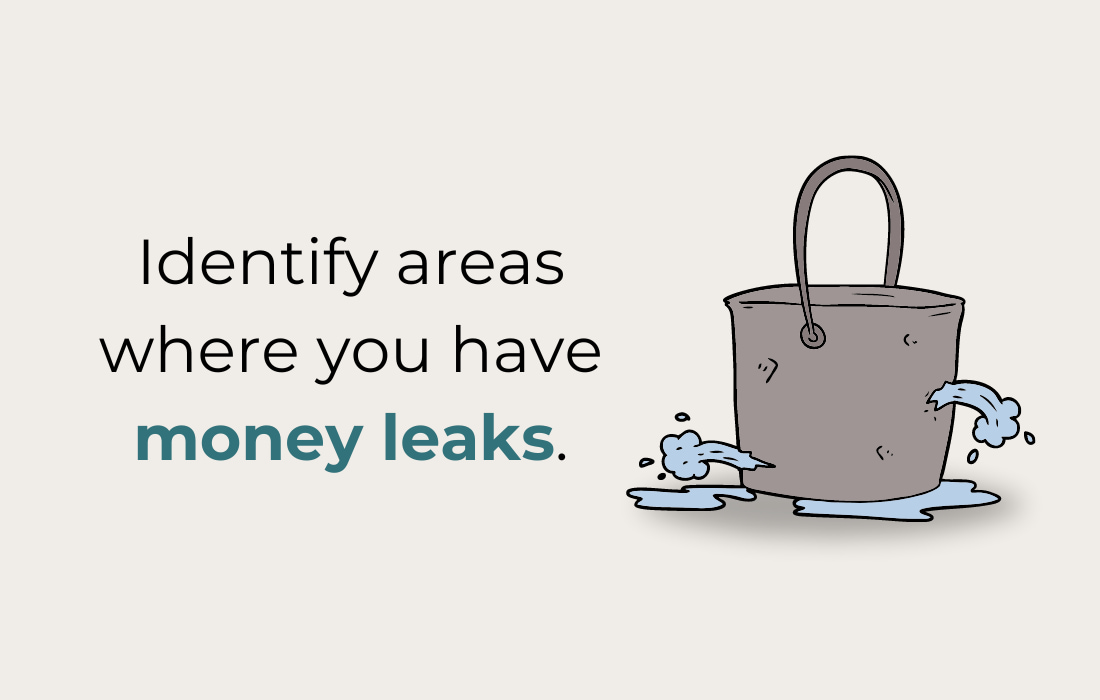Saving Money Doesn’t Have to Be So Hard
If you’re wondering how to become good at saving money, I’ve got 10 quick tips that I’ve personally been using for many years to grow my wealth.
Written By Tiffany Woodfield, Financial Coach, TEP®, CRPC®, CIM®
When focusing on saving money, the most important thing is to make sure that you know why you’re saving because this will keep you motivated.
Without motivation, staying on track will be difficult. But when you’re motivated, saving and budgeting can become second nature.

10 Quick Tips to Help You Become Good at Saving Money
- Track your spending.
- Create a budget.
- Set savings goals and remind yourself “why” you are saving.
- Automate your savings by having a set amount come off your paycheque.
- Review any automated expenses, such as Apple Music or other subscriptions.
- Be aware of your daily spending habits.
- Plan your grocery shopping ahead of time.
- Use budgeting tools such as envelope budgeting, zero-based budgeting or the 50/30/20 rule.
- Identify negative self-talk around budgeting and saving and change it into a positive mantra or positive affirmation.
- Be realistic with yourself. For example, if you overspend when using credit cards, then only have cash available.
How can I be better at saving money?
To improve your money-saving skills, you must understand where your money goes each month.
Then, you’ll need to look at how much goes towards needs versus wants.
Identify areas where you have money leaks in the form of mindless spending. These are things you are spending money on, but they don’t provide value. Once you understand your financial situation, you must create savings goals and use a budget and automated tools to help keep you on track.

What are some common mistakes people make when trying to save money, and how can I avoid them?
Some of the biggest mistakes I see when people start saving are as follows:
1 – People underestimate the importance or value of saving for the future.
To avoid this, start with a goal that excites you, such as a trip or a purchase you have wanted for a long time.
Write down this goal or have a picture of it on your phone and as a screen saver. (This is exactly what I did when manifesting my dream home—and it worked!)
Then, every time you think of purchasing something for “now,” pause and look at the picture, asking yourself if it is worth it.
2 – People put off saving for another day.
People may be motivated to make a change either out of fear or pleasure.
The problem is that when you’re not saving, you can easily avoid thinking about it. You aren’t dealing with a big fear every day.
Most people don’t worry about their savings until it is too late.
You can avoid this by creating fear now by looking at your finances, which so many people are afraid to do.
Looking at your finances can be a reality check that triggers you to act.
3 – People discount the strength of their limiting beliefs.
You may be trying to save, but in your head, you keep thinking, “Why am I doing this? I will never be successful,” or “Budgeting is for poor people.”
These thoughts make you feel bad for wanting to save. Acknowledge this doubt and remind yourself that it is natural to have doubt.
Don’t wait until you have zero doubt; that won’t happen. Instead, choose to make these positive changes despite the doubt; it will be worth it.
4 – People underestimate the benefit of having people around who support your goal.
When everyone around you is overspending and doesn’t understand the importance of saving, it is challenging to follow your path.
To avoid this, tell people about your goal.
Hopefully, you can find people with similar values. You may need to reduce the time you spend around people who do not share your values.

What should I do if I have no savings at all to start with?
It is okay not to have any savings to start with; at least you know your starting point.
You will still follow the first step: uncovering your spending habits.
How do I balance saving money with enjoying life now?
To balance saving money with enjoying life in the moment, you must ensure your budget is realistic and not too restrictive.
Otherwise, you will just give up. It also helps to continually remind yourself of your larger goal and how much enjoyment you will get from achieving this.
What are the best types of savings accounts or investment options for beginners?
If you are just starting, the most straightforward thing to do is go to where you do your banking and set up a savings account.
Many can offer a pre-authorized savings plan where a certain percentage automatically comes off your monthly paycheque.
When you start investing as a beginner, it is easiest to begin with interest-bearing securities, which usually have a guaranteed return.
Quick Video: 3 Tips to Start Budgeting
You can use these three simple steps tips to get started budgeting so you can achieve financial freedom more quickly and easily! Make sure you click the subscribe button if you’re YouTube user so you get more of these videos in your feed.
Final Thoughts
Mastering the art of saving money is a journey that requires dedication, awareness, and a bit of strategy.
By following the ten quick tips outlined above, you’re not just saving money but investing in your future and securing financial freedom. Remember, it’s not about restricting yourself—it’s about making smarter choices that align with your goals and values.
Whether you’re starting from scratch or looking to refine your savings strategy, the key is to stay motivated, be mindful of your spending, and surround yourself with support.
As you embark on this journey, keep in mind that every small step towards saving is a step towards building a more secure and fulfilling life. By avoiding common pitfalls, you can strike a balance between enjoying the present and preparing for the future.
Saving money isn’t just about accumulating wealth; it’s about empowering yourself to live the life of your dreams.
So, embrace these practices, stay committed to your financial goals, and watch your savings and sense of accomplishment grow over time.
Remember, the journey to financial freedom is a marathon, not a sprint.
Take it one day at a time, and soon, you’ll be great at saving money!
Get the Free Guide and Audio Meditation for Manifesting Your Dreams
Pop your email address in the form below to get my easy checklist and guide to manifesting and the guided audio meditation to help you get started.
You’ll also get one or two emails per month with the latest blog posts about abundance, wealth-building, manifesting, and creating a fulfilling life.
Related Articles
💎 Budgeting 101: How to Create and Follow a Simple Budget
💎 How To Get Your Mind in the Mindset of Saving Money
💎 How to Stick to a Budget (Even If You’re New to Budgeting)
About the Author

TIFFANY WOODFIELD is a financial coach, cross-border expert, and the co-founder of SWAN Wealth based out of Kelowna, BC. As a TEP and associate portfolio manager, Tiffany has extensive experience working with successful professionals who want to leave a legacy and enjoy an adventurous, work-optional lifestyle. Tiffany combines extensive knowledge from her background as a financial professional with coaching and her passion for personal development to help her clients create a unique path that allows them to live their fullest potential. Tiffany has been a regular contributor to Bloomberg TV and has been interviewed by national and international publications, including the Globe and Mail and Barron’s.